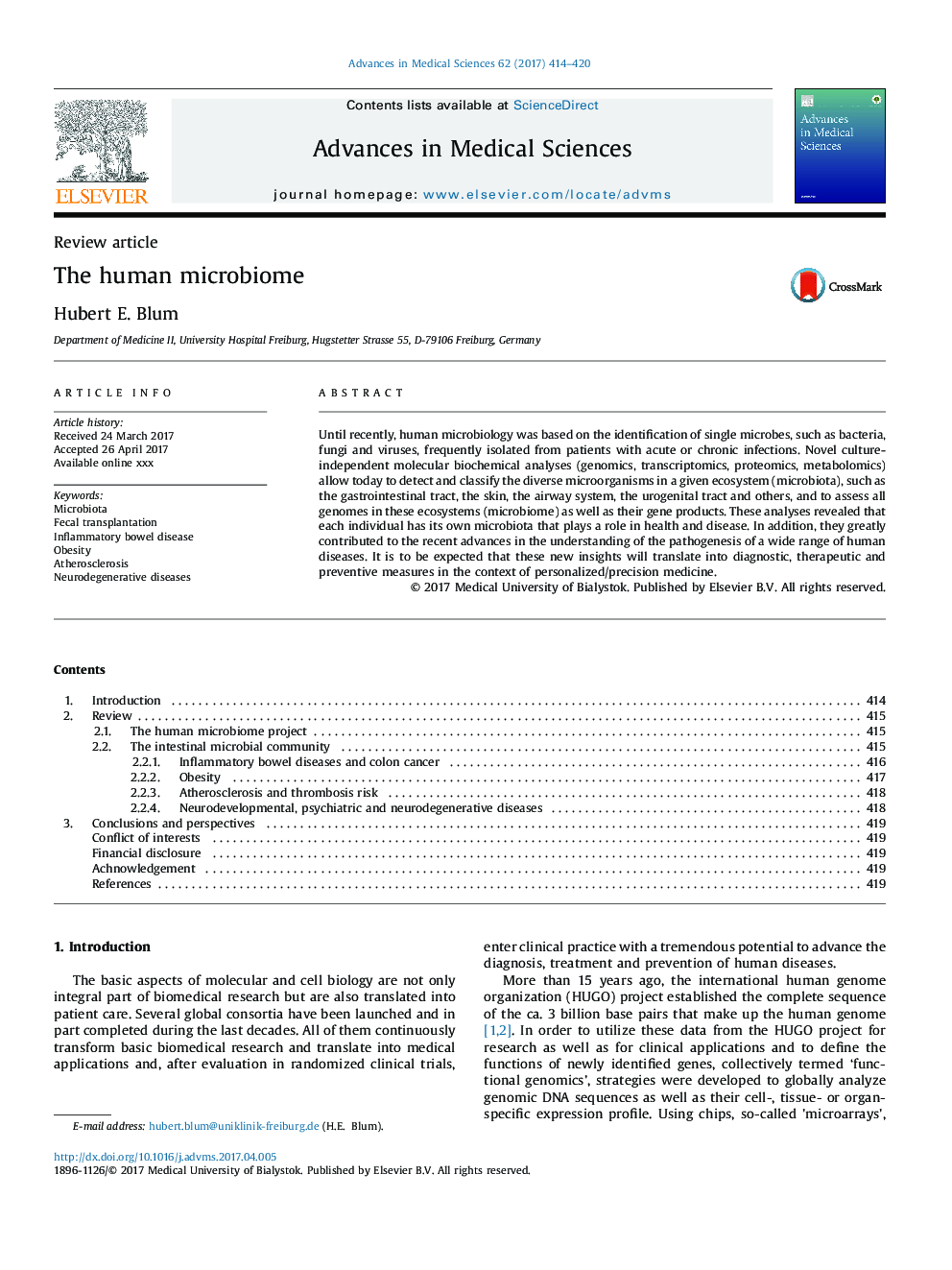| Article ID | Journal | Published Year | Pages | File Type |
|---|---|---|---|---|
| 8368312 | Advances in Medical Sciences | 2017 | 7 Pages |
Abstract
Until recently, human microbiology was based on the identification of single microbes, such as bacteria, fungi and viruses, frequently isolated from patients with acute or chronic infections. Novel culture-independent molecular biochemical analyses (genomics, transcriptomics, proteomics, metabolomics) allow today to detect and classify the diverse microorganisms in a given ecosystem (microbiota), such as the gastrointestinal tract, the skin, the airway system, the urogenital tract and others, and to assess all genomes in these ecosystems (microbiome) as well as their gene products. These analyses revealed that each individual has its own microbiota that plays a role in health and disease. In addition, they greatly contributed to the recent advances in the understanding of the pathogenesis of a wide range of human diseases. It is to be expected that these new insights will translate into diagnostic, therapeutic and preventive measures in the context of personalized/precision medicine.
Keywords
Related Topics
Life Sciences
Biochemistry, Genetics and Molecular Biology
Biochemistry, Genetics and Molecular Biology (General)
Authors
Hubert E. Blum,
